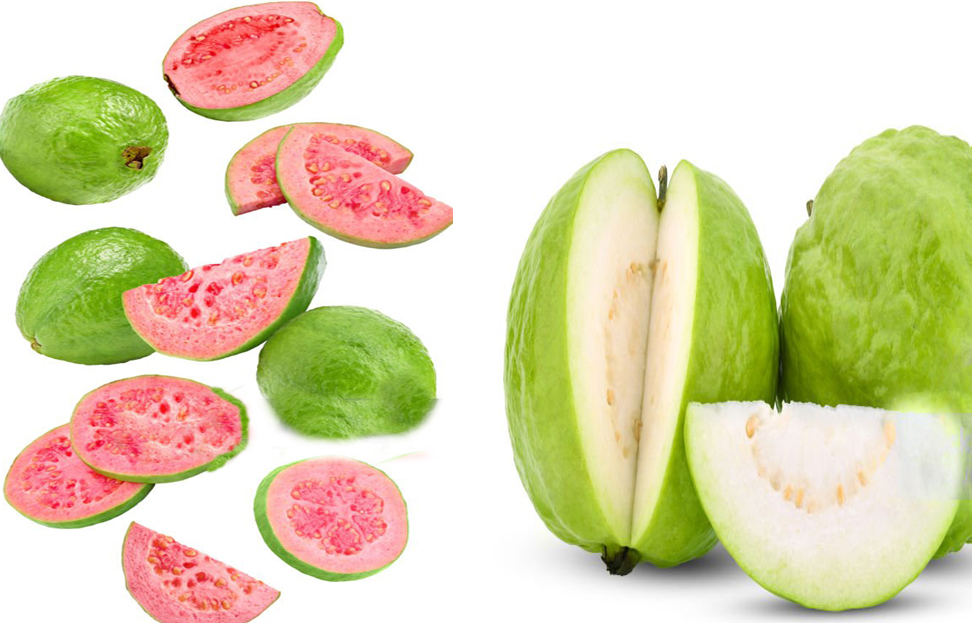What Are the Health Benefits and Disadvantages of Eating Guava?
What are guavas?
Guava, a popular tropical tree, bears fruits that are not only delicious but also rich in nutritional benefits. Classified as a berry, guavas are low in fats yet packed with fiber, vitamins, and antioxidants. From controlling blood sugar levels to potentially reducing cancer risk, the health advantages of guavas are diverse. However, like any food, there are considerations to keep in mind, such as potential constipation and allergies.

Local Names in Different Countries:
The little tropical guava tree, scientifically known as Psidium guajava, is a native of Mexico and Central America and a member of the Myrtaceae family. Due to its widespread use, other regional names have been coined for it, including Goeajaaba in Dutch and Guayaba in Spanish. Widely grown, the common guava type is distinguished by its round or oval-shaped fruits that range in color from light green to red and yellow.
| Country | Local Name |
|---|---|
| Mexico and Central America | Guayaba |
| Netherlands | Goeajaaba |
How To consume?
Exploring the Rich Diversity of Guava Varieties

Nutritional Profile of Guava
According to the United States Department of Agriculture, 100 grams of raw guava contains 68 calories, 0.95 grams of fat, 2.55 grams of protein, and 14.3 grams of carbohydrates. Notably, guavas are a superb source of vitamin C, providing five times more than oranges. They also offer vitamin A, vitamin B9 (folate), vitamin K, potassium, magnesium, phosphorus, zinc, iron, calcium, and antioxidants.
Nutritional Information per 100 grams:
| Nutrient | Amount |
|---|---|
| Calories | 68 |
| Fat (g) | 0.95 |
| Protein (g) | 2.55 |
| Carbohydrates (g) | 14.3 |
| Vitamin C (mg) | More than oranges |
| Vitamin A | Available |
| Vitamin B9 (Folate) | Available |
| Vitamin K | Available |
| Potassium (mg) | Available |
| Magnesium (mg) | Available |
| Phosphorus (mg) | Available |
| Zinc (mg) | Available |
| Iron (mg) | Available |
| Calcium (mg) | Available |
| Antioxidants | Available |
Health Benefits of Guavas
1. Blood Sugar Control:
Guavas have demonstrated potential in controlling blood sugar levels. Research indicates that guava leaf tea may help with insulin resistance, which makes it a useful supplement for diabetics.
2. Menstrual Pain Relief:
Supplements containing guava leaf extract have shown to be more effective than conventional medications like ibuprofen in relieving period cramps.
3. Digestive Health Support:
Guavas’ high dietary fiber content helps ease constipation and other digestive problems by promoting regular bowel movements. Additionally effective treatments for infectious diarrhea have been shown to include guava leaf extracts.
4. Potential Cancer Risk Reduction:
Although further studies are required, guava leaf extracts have demonstrated potential as a cancer treatment. Guava leaves’ antioxidants shield cells from the damaging effects of free radicals, which may help lower the risk of cancer.
5. Immune System Boost:
Rich in vitamin C, guavas support a healthy immune system. Guava leaves provide protection against a range of illnesses due to their antiviral, antibacterial, and antifungal characteristics.
6. Heart Health Promotion:
Guava fruits and leaves lower blood pressure, protect cells from harm by free radicals, and raise cholesterol levels, all of which are beneficial to heart health.
Side Effects and Considerations
In moderation, guavas are typically safe to eat. However, there is a small chance of developing an allergy, and excessive consumption may cause digestive problems including diarrhea. Guava storage chemicals should be handled carefully since they could be harmful to your health.
Who Should Be Cautious
1. Pregnant and Breastfeeding Women:
Although guavas are generally harmless, since guava leaf extract supplements are not FDA-approved, prudence is urged when using them.
2. People with Skin Conditions:
Guavas should be avoided by those who already have skin disorders such as eczema, as the compounds in the fruit and leaves might cause skin irritation.
3. Pre-diabetic or Diabetic Patients:
Extracts from guava leaves have the ability to affect blood sugar levels and may interfere with prescription diabetes drugs. Before using guava leaf extract, those with diabetes or pre-diabetes should speak with their healthcare physician.